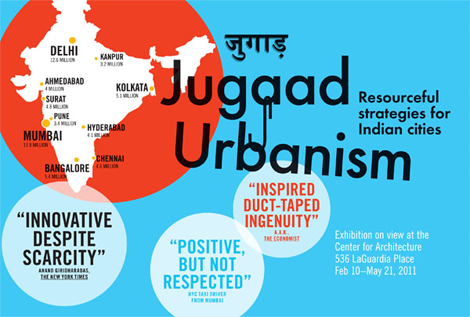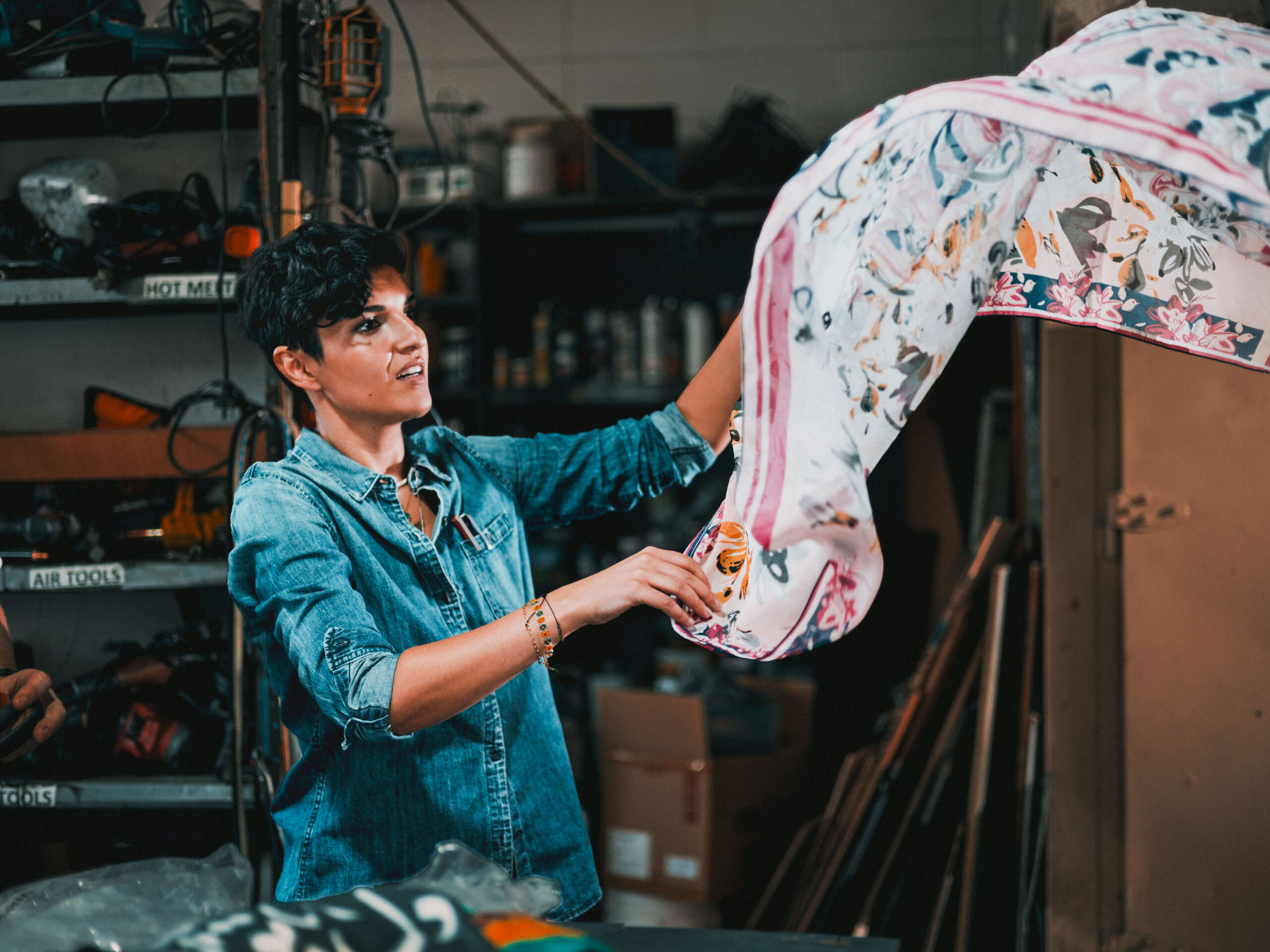
March 11, 2011
Jugaad Urbanism and the New Architectural Modesty

Much in the spirit of MoMA’s recent Small Scale, Big Change exhibition of socially engaged architecture, New York’s Center for Architecture recently opened its own show of design for the under-served, Jugaad Urbanism: Resourceful Strategies for Indian Cities. While there’s no precise English translation for the term jugaad, make-do or jury-rigged approximate the idea. The show’s subject is India, but the message is clear: the jugaad spirit is applicable the world over. I review the show in the March issue of the Architectural Review. A taste:
It’s been more than a century since the great Chicago architect and urbanist Daniel Burnham advised, ‘make no little plans, for they have no magic to stir men’s blood.’ Today, big plans of the architectural sort have a way of stirring the blood, but for reasons contrary to Burnham’s intention: how often do we hear objections to hubristic modern projects that are too big, too expensive, too inhumane, too paternalistic and too impractical? In our postcolonial age, architecture’s utopian impulse has been humbled by a guilty conscience and a heady dose of pragmatism.
Also worth, a read: Avinash Rajagopal’s Metropolis review of on an exhibition, at Cornell, on the Tato Nano, which also happens to be on display in the Jugaad show.
Observed
View all
Observed
By Mark Lamster
Related Posts

Business
Courtney L. McCluney, PhD|Essays
Rest as reparations: reimagining how we invest in Black women entrepreneurs

Design Impact
Seher Anand|Essays
Food branding without borders: chai, culture, and the politics of packaging

Graphic Design
Sarah Gephart|Essays
A new alphabet for a shared lived experience

Arts + Culture
Nila Rezaei|Essays
“Dear mother, I made us a seat”: a Mother’s Day tribute to the women of Iran
Recent Posts
Courtney L. McCluney, PhD|Essays
Rest as reparations: reimagining how we invest in Black women entrepreneurs Food branding without borders: chai, culture, and the politics of packaging Why scaling back on equity is more than risky — it’s economically irresponsible Beauty queenpin: ‘Deli Boys’ makeup head Nesrin Ismail on cosmetics as masks and mirrorsRelated Posts

Business
Courtney L. McCluney, PhD|Essays
Rest as reparations: reimagining how we invest in Black women entrepreneurs

Design Impact
Seher Anand|Essays
Food branding without borders: chai, culture, and the politics of packaging

Graphic Design
Sarah Gephart|Essays
A new alphabet for a shared lived experience

Arts + Culture
Nila Rezaei|Essays
